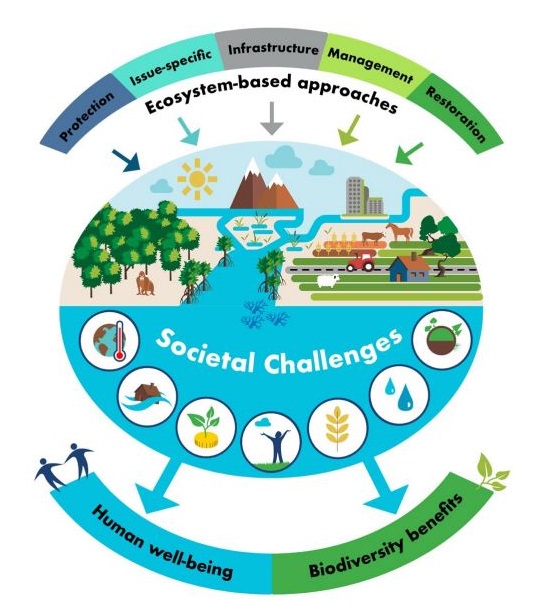International Union for Conservation of Nature | Source | Download |
The planetary crises of climate change, biodiversity loss, and resource depletion threaten global stability. However, society has previously shown its capability to address such issues, as demonstrated by the successful action against ozone layer depletion in the 1970s. Now, Nature-based Solutions (NbS) offer a promising approach to tackling multiple sustainability challenges.
Nature-based Solutions utilize natural processes to address environmental, social, and economic issues. These solutions include protecting, sustainably managing, and restoring ecosystems. The IUCN's Global Standard for NbS, created with insights from over 800 experts, provides a framework for implementing these solutions effectively and equitably.
Policy Recommendations
- Adopt the IUCN Global Standard for NbS: Implement the 8 Criteria and 28 Indicators to ensure solutions are robust, context-responsive, and adaptive. Use the self-verification toolkit to facilitate accessible and effective NbS design and assessment.
- Enhance Multi-Stakeholder Engagement: Ensure transparency and consensus in decision-making processes to balance trade-offs between short-term and long-term needs. Promote inclusive planning that considers the needs of all impacted stakeholders, enhancing social equity and economic viability.
- Integrate NbS into National Policies: Mainstream NbS within national development plans and global commitments to ensure long-term sustainability. Align NbS initiatives with policies to bolster societal well-being and economic recovery, particularly in the post-pandemic context.
- Foster Continuous Learning and Adaptation: Establish an adaptive management approach to NbS, allowing for ongoing learning and improvement. Support the development of a global community of NbS practitioners to share best practices and evolve the standard.



